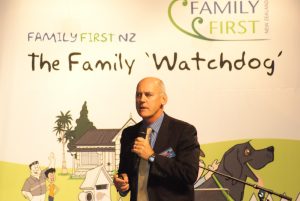by ROWENA OREJANA
Medical marijuana has, in some ways, turned the development of medicine on its head.
Interest groups wanting the recreational use of marijuana legalised have joined with people who want to use derivatives for real medical purposes.
Bioethicist Dr Gregory Pike, director of the Adelaide Centre for Bioethics and Culture and chairman of the Board of Australian Drug Treatment and Rehabilitation Programme, said at the NZ Forum on the Family in August that it is strange that the efficacy of marijuana’s medical properties is debated in public rather than tested in the usual way.
“I think we can be forgiven for thinking there are mixed motives at work. And when we ask the question, ‘Would there be some impetus for medical marijuana if marijuana were not psychoactive?’ it’s on this backdrop of access
for recreational use that medical marijuana has arisen,” he said.
Dr Pike said that in 1979 Keith Stroup, the executive director of marijuana campaigners NORML, was quoted as saying, “We will use medical marijuana as a red herring to give pot a good name”.
NORML (National Organisation for the Reform of Marijuana Laws) is an American outfit with a New Zealand affiliate.
With huge funding by billionaires George Soros, Peter Lewis and John Sperling, the group pushed the use of marijuana as medicine on humanitarian and compassionate grounds.
“That kind of message is very difficult to deal with because it hooks with the compassion argument very strongly. There is some legitimacy in it [medical marijuana], but at the same it’s conflating the intent to use marijuana
as medicine and its widespread use for recreation and its attendant harm,” he said.
Dr Pike said there is serious harm in recreational use. “In and of its own right, it deprives freedom. It takes away from people the opportunity to pursue the natural gifts of life. It becomes an addicted focus that is destructive to all things around it.”
Dr Pike said a rigorous process determines if a substance is a medicine or not. This identifies negative effects and adverse reactions and finds if a substance’s therapeutic benefits outweigh negative effects.
“We make this clear distinction between use and abuse. We look at abuse potential and see how it might make good
medicine.”
But this process has been thrown out with cannabis.
In the public square, he said, science is discounted in favour of dramatic anecdotal stories.
In Connecticut, he said, legislators have legitimised medical marijuana before calling in doctors with relevant expertise.
In Colorado, marijuana dispensaries outnumber Starbucks outlets, and one study showed 48.8 per cent of adolescents who had had substance abuse treatment got marijuana from a registered medical practitioner, Dr Pike said.
Ten per cent of recommendations for use of medical marijuana were made by one doctor and another 49 per cent by only 15.
There may be legitimate use for elements of marijuana as medicine. But “the evidence is thin”, the harm is real, and should not be played down.

Reader Interactions